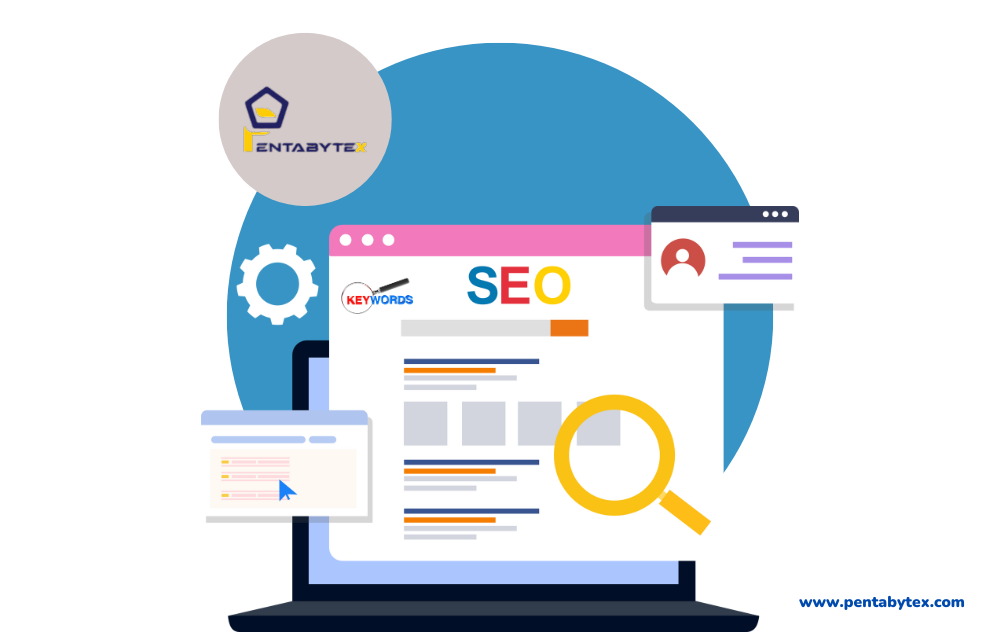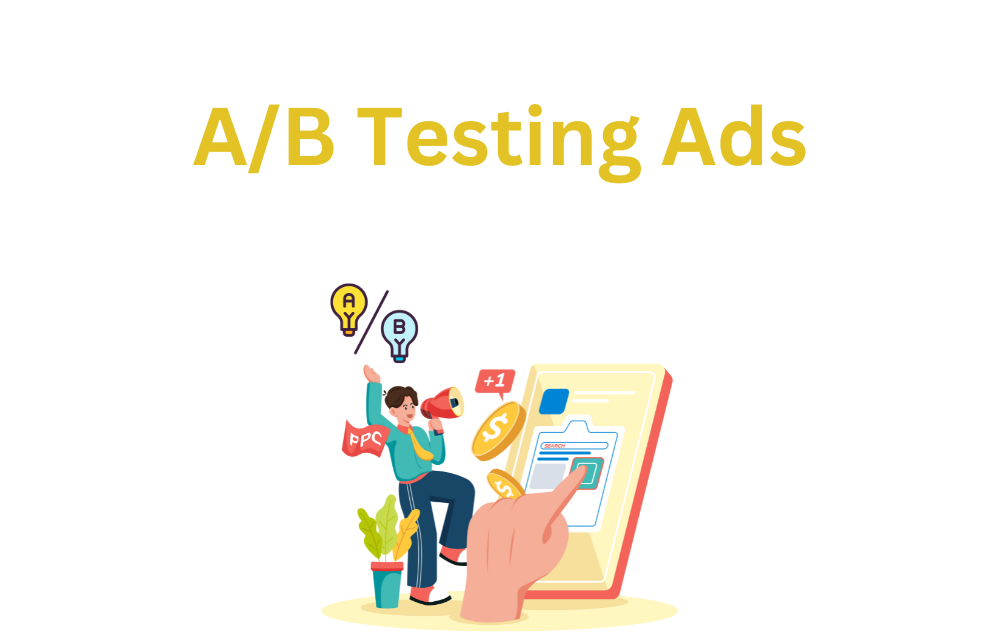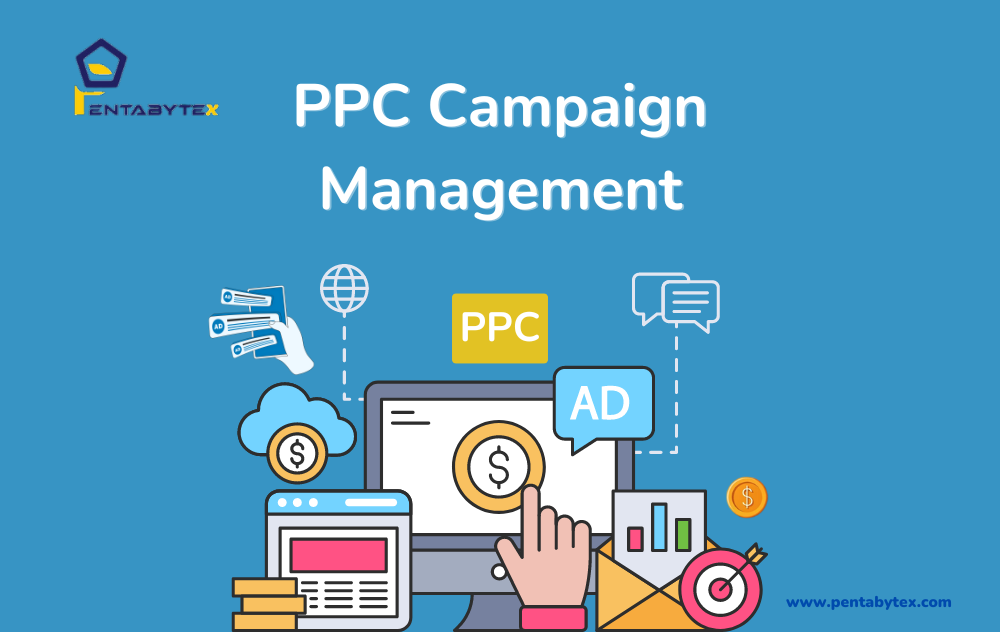Managing PPC campaign management is very important to improve the effectiveness of your digital marketing efforts. Despite there being several marketing strategies that may work well, PPC stands out because of its instantaneous results.
However launching your PPC ad campaign without further management will not really do so because frequent updates are necessary to attract the right audience, improve click-through rates (CTRs), and possibly raise conversion rates.
This article outlines nine best practices for managing PPC campaigns categorizing them into four basic and five advanced tactics while revealing their practical gains for businesses.
What Is PPC Campaign Management?
PPC campaign management implies running and organizing your company’s pay-per-click strategy and finances to maximize return on investments (ROI).
The main goal is to ensure campaigns are optimally set, fine-tuned, and modified whenever necessary to achieve peak levels of performance.
The following are essential tasks for PPC campaign managerial activities:
- Analysis of keywords
- Analysis of competition
- Targeting channels
- Establishment of landing pages
- Campaign monitoring and optimization
- Testing PPCs
4 Essential Steps of PPC Campaign Management
1. Find and Pick the Right Keywords

Any successful PPC campaign begins with keyword research. Begin by recognizing what your customers use to search for your products or services. Tools such as Google Keyword Planner, SEMrush, and Ahrefs can be used to unearth relevant keywords that have a good search volume.
Consider the following:
Search volume: Check that there is sufficient traffic for the selected keywords.
Competitiveness: Analyze the level of difficulty in ranking these keywords.
Trends: Find out whether these keywords are becoming more or less popular.
Competitor keywords: Determine the keywords used by your opponents.
What this means is that you should also use negative keywords so that your ads don’t appear for unrelated search terms and in turn, prevent money wastage.
2. Monitor Your Competition
Understanding your competitors’ strategies can provide valuable insights. Check out whether the PPC ads of your rivals show up in search results by using key phrases about your product/service along with their names. Inspect their ad copy, pictures, and landing pages.
For further information, one could use various tools such as Ahrefs and Semrush that provide figures on competitors’ keywords and performance.
For more on analyzing competitors, see our Digital Marketing Trends blog.
3. Edit and Improve your Copy
It is essential to have an enticing unique selling proposition (USP). Concentrate on what benefits you offer that touch the user in a way that they cannot help but take action.
Your copy should include:
Title/Headline: Use words that draw attention, and keep them brief but pertinent.
Body: Highlight the main points, make them appealing through font choices, and maintain responsiveness with visuals in your ads.
Use insights from HubSpot’s PPC Guide for creating attractive ads.
Call-to-Action (CTA): Use strong action words, design CTAs in attractive ways as well as position them strategically for visibility.
The content of your advertisement should be consistent with the materials on your landing page to enhance conversion rates. For tips on creating effective landing pages, see our Social Media Strategy Tips blog.
4. Choose the Right Landing Pages
PPC advertisements aim to direct visitors toward a pertinent landing page. Therefore, it is essential to bring prospects to pages that have high conversion rates and are most relevant to the clickable advertisement.
It would be unwise to redirect users to your blog section or homepage if these are less efficient in terms of conversions.
5 Bonus Steps To Refine Your PPC Campaign Management
1. Enhance Your Targeting
Campaign styles have different targeting methods;
Keywords & Audience Targeting: These can be used in search campaigns.
Placement Targeting: Select the channels and sites for your advertising messages.
Audience Targeting: Refers to tapping into age, gender, income group, location, customer buying pattern, lifestyle, and even interest.
Contextual and Topic Targeting: Individuals use specific words to search for items in a particular context or choose particular articles that touch on certain subjects.
2. Bid Optimization
Establish a maximum cost-per-click (CPC) bid to control your budget efficiently. Constantly change the bids depending on how well the campaign is performing.
Think of automated bid-optimization strategies like Enhanced CPC, Target CPA, and Maximize Conversions for an easier way of managing it.
3. Remarketing Campaign
Web searches that earn you money do not always deserve to be targeted at new clients only. They can also retarget the existing ones or the people who interacted with your brand but did not become customers.
Through remarketing personalized ads are shown to them thus increasing their chances of conversion. Learn more about remarketing strategies at WordStream’s Remarketing Guide.
4. Monitor Conversions
By monitoring your PPC campaigns, you can know the things that are effective or not effective. The performance of your campaigns can be calculated by taking note of CTRs, bounce rates, and conversions that are involved in them.
Examining user actions on landing pages will help you understand the effectiveness of ads as well as landing pages. Use Google Analytics to gain insights into user interactions and campaign performance.
5. Take advantage of A/B Testing

A/B testing helps in making comparisons of your different ad versions to figure out their effectiveness. Some of the things that can be tested are titles, call-to-actions, visuals, or colors used to know what appeals to the target audience.
What Benefits Does PPC Campaign Management Offer?
1. Express Results in PPC Campaign Management
Aside from the time it takes for organic traffic growth to occur paid advertisements on the other hand yield visible returns and immediate outcomes. If keywords are well chosen alongside thorough investigations into competition, one can observe changes in their advertising within hours.
2. Specific Targeting in PPC Campaign Management
PPC makes it possible to determine very precise targets, enabling your ads to reach only those individuals who match a certain criterion about their type of device, geographical position, and time of the day at which they click such links as well as the respective searching patterns that go along with them at the time. Such accuracy increases the chances of getting well-qualified prospects.
3. Precise Performance Assessment
Describing and gauging key performance indicators such as site hits, impressions, clicks, expenditure or cost per action (CPA), exit rates, or bounce rate percentages to get the whole picture of your advertisement endeavors. These understandings assist in enhancing pay-per-click tactically.
4. Adaptable Financial Planning
Managing PPC campaigns allows for instant modifications reliant on success rates. By making changes in the money that is allocated ensure that you do not spend excessively by controlling bids and keyword matching.
5. Better brand recognition
Consistent PPC campaigns stimulate brand possibilities. The users may not click on your ads at their first glance; however, over time, they start becoming familiar with your brand name. This may eventually promote purchases.
6. Independence from SEO Algorithms
PPC is not new in the industry and reports results in an instant while maintaining a high rank for its updates. It gives you control over real-time adjustments and performance tracking so that you can always be up to date; unlike SEO which typically requires patience because you have to wait for several months expecting better rankings.
7. Testing New Strategies with PPC Campaign Management
Through PPC campaigns it is possible to try out fresh promotional techniques, advertising texts, and images before rolling them out in a broader context. Such kind of data-based method assists in perfecting your general promotional techniques.
Conclusion
The effective management of PPC campaigns is dependent on a combination of both basic and advanced principles. If you are managing the campaigns yourself or you are using an agency, these tricks will assist you in maximizing your return on investment on PPC.
The significance of maintaining and optimizing these campaigns to achieve your digital marketing goals can be illustrated by the number of advantages that come from well-run PPC campaigns such as getting quick results, having specific targets, being able to vary budgets, and creating a better brand image.







